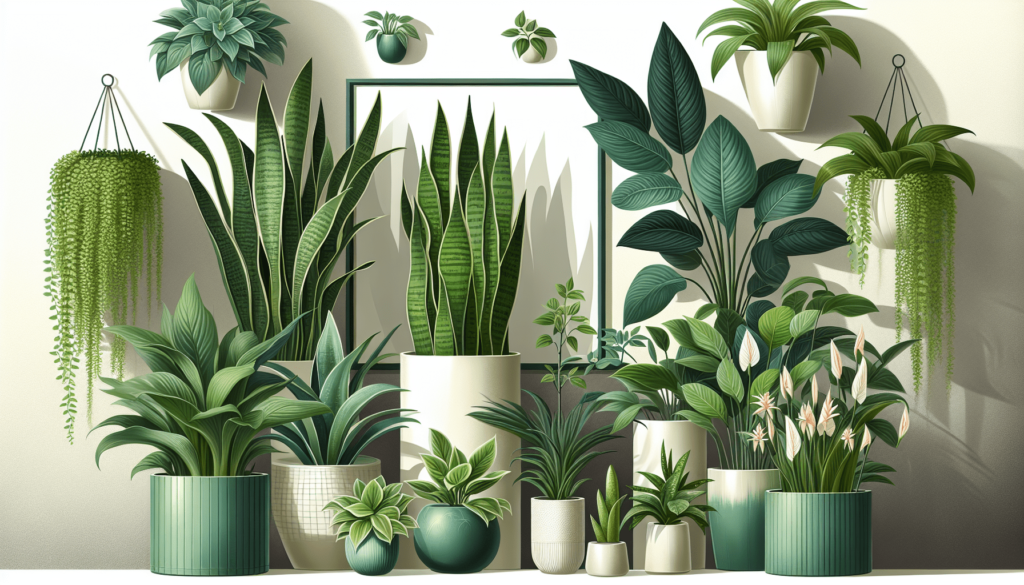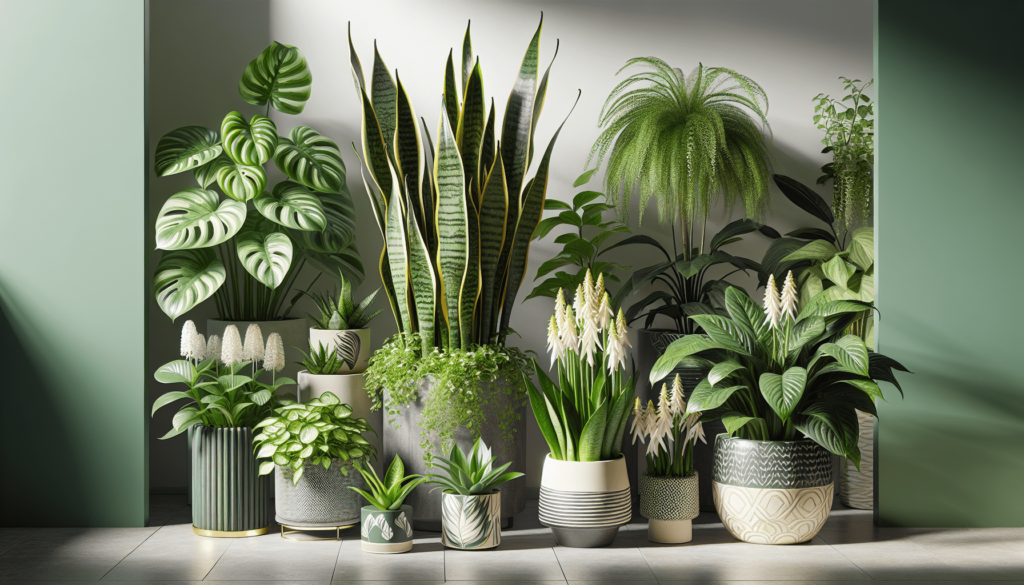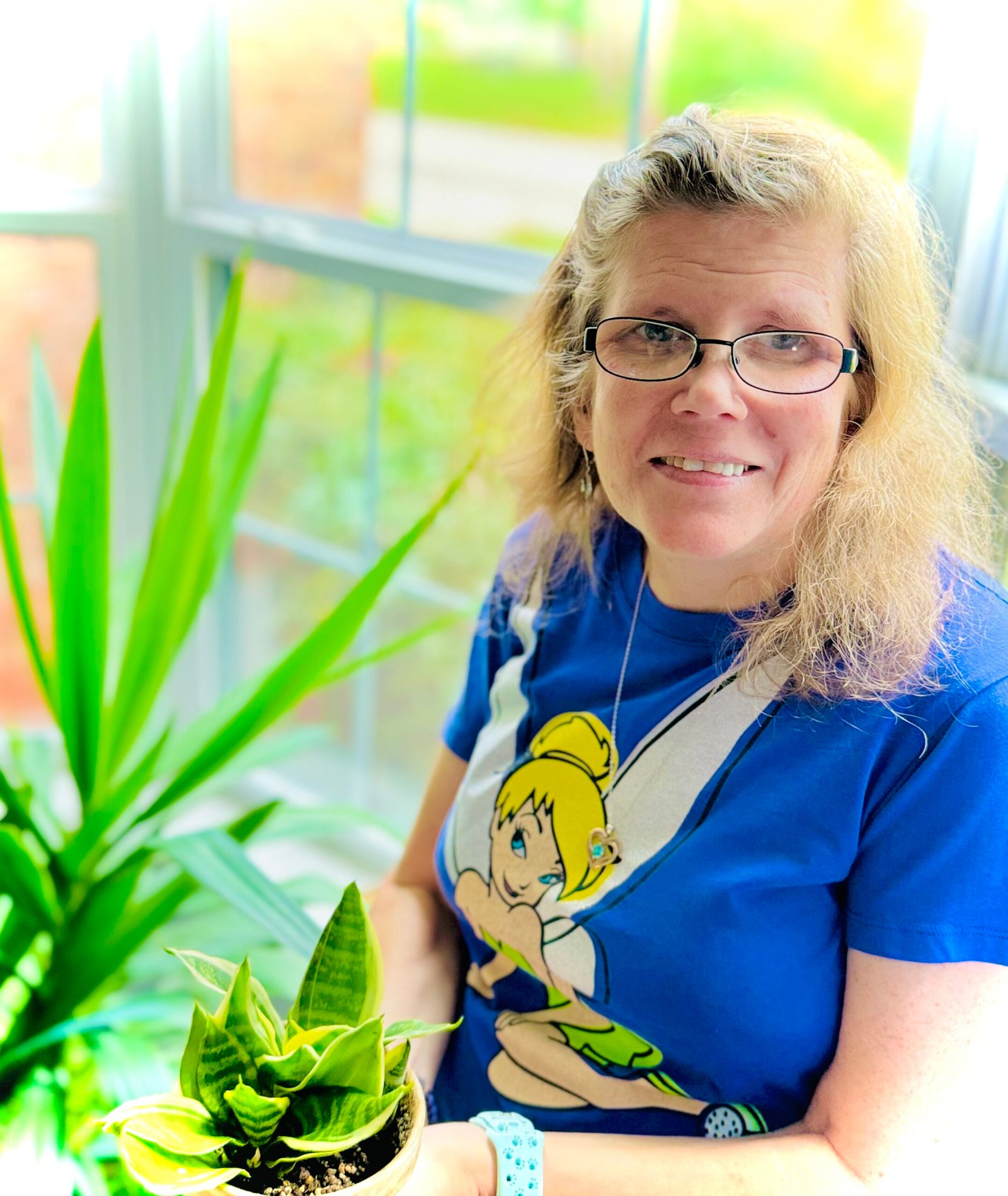When I first started filling my home with plants, I had no idea just how much of a positive impact they would have on my mental well-being. From the calming presence of a snake plant to the vibrant energy of a peace lily, each one has its own unique way of boosting my mood and reducing stress. In this article, I’ll share 12 of the best house plants that have not only brightened my living space but also significantly improved my mental health. Have you ever wondered how house plants can improve our mental health? In these fast-paced times, it seems like we’re always on the go, surrounded by concrete and technology. But what if I told you that bringing a bit of nature indoors could make a huge difference in how you feel day-to-day? That’s right, house plants don’t just add a pop of color or a touch of tranquility to your living space; they can offer tangible benefits for your well-being.
So, let’s dive into the world of green therapy and discover 12 house plants that will not only brighten up your rooms but also lift your spirits.
The Healing Power of Nature
Before I introduce you to the 12 house plants that can improve our mental health, let’s take a moment to understand why plants can be so beneficial. Nature has an uncanny ability to calm our minds and soothe our souls. Being surrounded by greenery has been shown to reduce stress, boost mood, and even improve cognitive function. Essentially, having house plants is like inviting a slice of nature into our homes.
Connection to Nature
Plants help us reconnect with nature. This connection is crucial for our mental well-being, especially when modern life often distances us from the natural world. Studies have shown that even short periods of time spent in natural environments can have a restorative effect.
Visual Appeal
Apart from their aesthetic value, plants add life and vibrancy to any space. The simple act of looking at greenery can be refreshing and uplifting. Imagine waking up and seeing a lush green fern or a pot of vibrant flowers brightening up your living room.
Air Quality
Many house plants act as natural air purifiers, removing toxins and releasing oxygen. Cleaner air can help improve our overall health, which in turn positively impacts our mental state. When we breathe easy, we feel better, and our minds can operate more clearly.
Now, let’s get specific about which house plants you might want to consider. Here are 12 house plants that are particularly effective in improving mental health.
1. Aloe Vera
My relationship with Aloe Vera began when I learned about its healing properties. This plant is more than just a quick fix for sunburns; it holds a treasure trove of benefits. Easy to care for and visually pleasing, it’s an excellent addition to any home.
Benefits of Aloe Vera
- Air Purification: Aloe Vera can help remove pollutants like formaldehyde and benzene from the air.
- Stress Reduction: Having this plant around can promote a sense of calm and well-being.
- Healing Aspect: The gel inside the leaves is useful for minor cuts and burns, making you feel more secure and cared for.
2. Lavender
Lavender has been a part of my life for as long as I can remember. Known for its soothing scent, this plant is a go-to for combating anxiety and promoting relaxation.
Benefits of Lavender
- Aromatherapy: Its scent is known to calm nerves and can even improve sleep quality.
- Mood Lifter: Just being around lavender can be uplifting, thanks to its lovely color and gentle aroma.

3. Snake Plant (Sansevieria)
Also known as Mother-in-Law’s Tongue, the Snake Plant is one hardy green buddy. I personally love how low-maintenance it is.
Benefits of Snake Plant
- Air Quality: This plant is a pro at removing toxins and providing cleaner air.
- Low Maintenance: Its hardy nature means less stress about keeping it alive, making it an ideal plant for beginners.
4. Peace Lily
If you’re looking for a plant that offers both beauty and function, the Peace Lily is a stellar choice.
Benefits of Peace Lily
- Air Purifier: This plant helps remove pollutants and can even reduce levels of mold spores.
- Increases Humidity: A more humid environment can be beneficial for respiratory health, which indirectly impacts your mental well-being.
5. Spider Plant
This was my first plant, and it’s great for novice gardeners. The Spider Plant is known for its striking appearance and ease of care.
Benefits of Spider Plant
- Improves Air Quality: It’s effective in removing pollutants like formaldehyde and xylene.
- Easy to Grow: It multiplies quickly, so you can spread the joy to other rooms or even gift baby plants to friends.

6. English Ivy
A cascading beauty, English Ivy is more than just aesthetically pleasing. It has multiple mental health benefits that make it worth incorporating into your home.
Benefits of English Ivy
- Air Purification: It’s particularly good at removing mold spores and allergens.
- Mood Enhancer: Its trailing vines can make any room look more inviting and serene.
7. Basil
Who knew that an herb mostly recognized for its culinary uses could also serve as a mental health booster? I keep a pot of Basil in my kitchen and love how it does double duty.
Benefits of Basil
- Aromatherapy: The scent of basil can invigorate the senses and improve mood.
- Mental Clarity: Some studies suggest that basil may help boost mental clarity and focus.
8. Pothos
Ah, Pothos! This leafy wonder has been a constant in my home. It’s often referred to as “Devil’s Ivy” and is nearly indestructible.
Benefits of Pothos
- Air Cleaner: It helps purify the air by removing toxins.
- Low Maintenance: Its high resilience makes it a great choice for those who might not have a green thumb.
9. Rosemary
This plant is another culinary and medicinal gem. Rosemary grows well indoors and adds a fragrant touch to your living space.
Benefits of Rosemary
- Aromatherapy: The scent of rosemary can improve concentration and memory.
- Mood Booster: Its lovely fragrance can act as a stress reducer.
10. Jade Plant
Known as the “money tree” in some cultures, the Jade Plant is admired for its fleshy leaves and ease of care.
Benefits of Jade Plant
- Air Purification: It helps remove toxins.
- Visual Appeal: Its rich, green leaves can bring a sense of peace and prosperity to your home.
11. Chamomile
Chamomile is a go-to for teas, but did you know it also makes for a great house plant? It’s relatively easy to grow indoors and can be a lovely addition to any room.
Benefits of Chamomile
- Soothing Properties: Chamomile is known for its calming effects and can help reduce anxiety.
- Improves Sleep: Placing this plant in your bedroom can contribute to better sleep quality.
12. Rubber Plant
Last but certainly not least, the Rubber Plant is a robust and attractive house plant that brings multiple benefits to your mental health.
Benefits of Rubber Plant
- Air Quality: It helps remove airborne toxins.
- Stress Relief: Its large, glossy leaves can be surprisingly calming.
Tips for Looking After Your House Plants
Having house plants is wonderful, but they do require some care. Over the years, I’ve picked up a few tips and tricks that have helped keep my greens thriving.
Watering
Different plants have different watering needs. Overwatering can be as detrimental as under-watering.
| Plant | Watering Frequency |
|---|---|
| Aloe Vera | Every 3 weeks |
| Lavender | Weekly |
| Snake Plant | Every 2-3 weeks |
| Peace Lily | Weekly |
| Spider Plant | Every 1-2 weeks |
| English Ivy | Weekly |
| Basil | Every 2-3 days |
| Pothos | Weekly |
| Rosemary | Weekly |
| Jade Plant | Every 2-3 weeks |
| Chamomile | Weekly |
| Rubber Plant | Every 1-2 weeks |
Light
Most house plants require bright but indirect light. However, some are shade-tolerant and can thrive in lower light conditions.
Soil
The type of soil you use can also impact how well your plants do. Ensure you’re using the right kind of soil suited to the specific needs of your plant.
Humidity
Some plants require higher humidity levels. If your home is particularly dry, consider using a humidifier or placing a tray of water near your plants.
Final Thoughts
House plants offer so much more than just aesthetics. They are silent guardians of our mental well-being, contributing to a healthier and happier environment. Each of these 12 plants brings something unique to the table, and incorporating them into our living spaces can make a tangible difference in our mental health.
Why not start with one or two and see how they transform your home and mood? You might be surprised by the peace and joy these green companions can bring.

My name is Michelle Warren, and I’m the founder of Peaceful Gardening. As a 10-year breast cancer survivor, I’ve discovered the profound therapeutic power of gardening. This journey has not only helped me recover but has also become my passion and a source of ongoing peace and joy.
Peaceful Gardening was born from my desire to share the healing benefits of gardening with others. Whether you’re facing health challenges, dealing with stress, or simply looking to connect more deeply with nature, this space is for you.
Over the past decade, I’ve cultivated not just plants, but a deep understanding of how gardening can positively impact mental health. I’ve worked with local community gardens, led workshops on mindful gardening practices, and collaborated with mental health professionals to develop gardening-based stress reduction programs.
Peaceful Gardening was born from my desire to share the healing benefits of gardening with others. Whether you’re facing health challenges, dealing with stress, or simply looking to connect more deeply with nature, this space is for you.
Here, you’ll find evidence-based advice on using gardening as a tool for mindfulness, stress relief, and emotional healing. I share personal stories, practical tips, and scientifically-backed information on how to create your own therapeutic garden space, no matter the size of your yard or balcony.
My mission is to help you discover the joy, peace, and healing that comes from nurturing plants and connecting with nature. Join me in exploring how the simple act of tending to a garden can transform your mental and emotional wellbeing.
Welcome to Peaceful Gardening – let’s grow together towards better mental health!”
